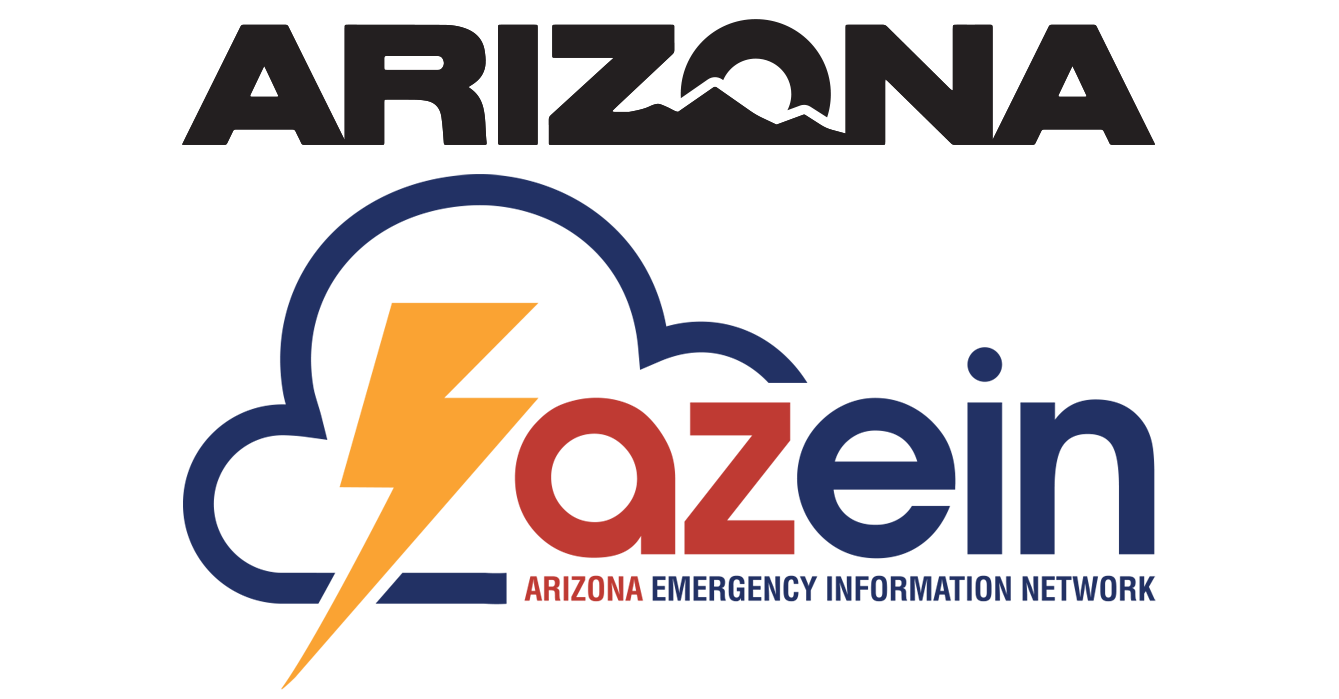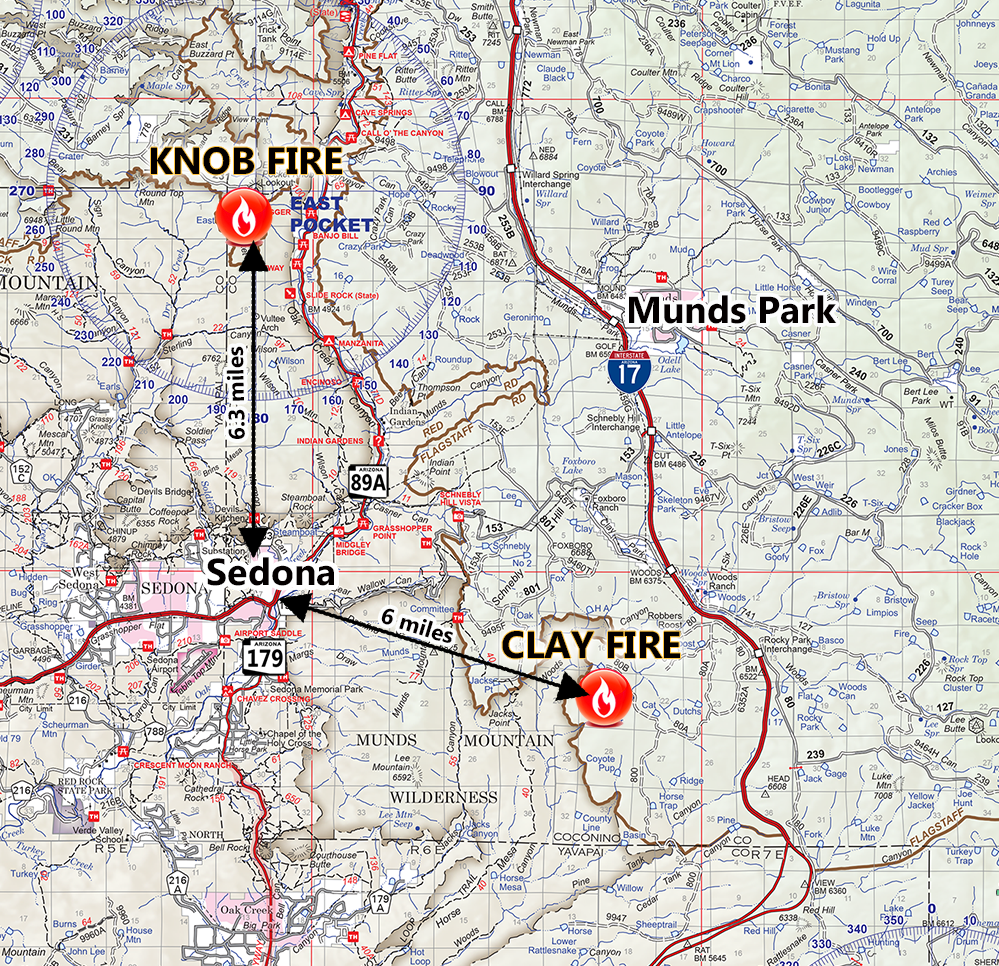Lightning-caused wildfires to remain visible from Sedona area
Coconino National Forest fire managers are working to suppress two lightning-caused wildfires, the Knob Fire and the Clay Fire. Both fires are located outside the Sedona area and pose no threat to communities.
The Knob Fire, located 6.5 miles north of Sedona, is approximately 4 acres in size. Resources working to contain and suppress the Knob Fire include one engine, one hand crew and one Type 3 helicopter.
The Clay Fire, located 6 miles east of Sedona, is roughly 4 acres in size. Resources working to contain and suppress the Clay Fire include two engines, a helitack module and a Type 1 helicopter conducting bucket drops.
Smoke will remain highly visible from Sedona and nearby areas, including Munds Park, Jerome and Interstate 17, during suppression work.
Both fires were reported Monday following a weekend storm.
Coconino National Forest fire managers made the decision to suppress the Knob and Clay fires due to the location of both fire starts. Both fires originated in rugged, steep terrain with poor access for wildland firefighting operations. These locations also lack good holding features (such as wide roads and canyons) that would safely confine the fire to a pre-determined area and ensure full containment.
When lightning-caused fires are reported, fire managers complete a full analysis before deciding whether to suppress a fire or manage it to benefit the fire-adapted ponderosa pine ecosystem of northern Arizona.
While the Knob and Clay fires will both be managed with a full-suppression strategy, Coconino National Forest fire managers will continue to seek opportunities to manage lightning-caused fires for forest health as outlined in the Forest Service's 10-year Wildfire Crisis Strategy. The management – which includes planned, strategic growth – of certain lightning-caused fires can reduce hazardous fuel loading, improve watershed health, and protect northern Arizona communities from future catastrophic and unwanted wildfires.


